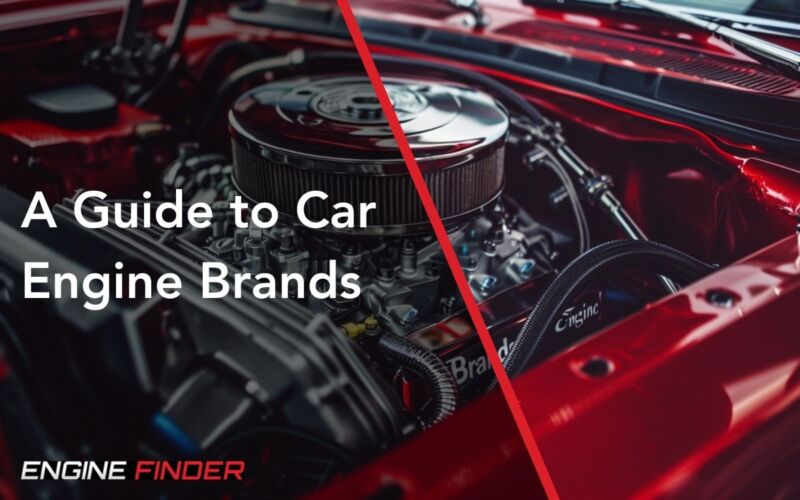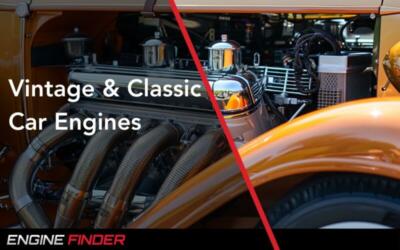Introduction
As a car enthusiast, I’ve always been fascinated by the different engine brands that power our vehicles. From the iconic American muscle car engines to the precision-engineered European powerplants, each brand has its own unique history and offerings. In this comprehensive guide, I’ll take you on a journey through the world of car engine brands, exploring their origins, reliability, and the engines that define them.
American Engine Brands
American engine brands have a rich history, often associated with powerful, high-displacement engines. Let’s take a closer look at two of the most prominent American engine manufacturers:
General Motors
- History and background: General Motors has been a leading force in the American automotive industry for over a century, with a wide range of iconic engines.
- Notable engine offerings: GM is known for its small-block V8 engines, such as the Chevrolet Small-Block and the LS series, which have powered countless muscle cars and performance vehicles.
- Reliability and customer satisfaction: GM engines are generally regarded as reliable, with a strong aftermarket support network for maintenance and upgrades.
Ford Motor Company
- Engine lineup and technology: Ford offers a diverse range of engines, from the efficient EcoBoost turbocharged engines to the powerful Coyote V8 found in high-performance Mustangs and trucks.
- Performance and efficiency: Ford engines strike a balance between performance and efficiency, with technologies like direct injection and variable valve timing.
- Future engine developments: Ford is investing heavily in electrification and hybrid technology, paving the way for a new era of efficient and powerful engines.
Leading European Car Engine Manufacturers
European engine manufacturers are renowned for their engineering excellence, precision, and innovation. Two of the most prominent brands are:
Volkswagen Group
- Brands under the Volkswagen umbrella: The Volkswagen Group encompasses several brands, including Audi, Porsche, and Bentley, each with their own unique engine offerings.
- Innovative engine designs and features: VW is known for its TDI diesel engines, TSI turbocharged gasoline engines, and cutting-edge technologies like cylinder deactivation and variable geometry turbochargers.
- Environmental sustainability efforts: Despite past challenges, VW is now focusing on environmentally friendly engines, with a strong push towards electrification.
Mercedes-Benz
- Reputation for engine quality and luxury: Mercedes-Benz engines are synonymous with refinement, smoothness, and durability, befitting the brand’s luxury status.
- High-performance AMG engines: Mercedes-AMG, the performance division of Mercedes-Benz, creates powerful, hand-built engines that deliver exceptional performance.
- Advancements in engine electrification: Mercedes is at the forefront of hybrid and electric engine technology, with innovative offerings like the EQ range of electric vehicles.
Japanese Car Engine Brands
Japanese engine brands have earned a reputation for reliability, efficiency, and technological innovation. Two standout brands are:
Toyota
- Renowned reliability and durability: Toyota engines are known for their longevity and trouble-free operation, making them a popular choice for daily drivers and fleet vehicles.
- Hybrid engine technology leadership: Toyota is a pioneer in hybrid engine technology, with the iconic Prius and a growing range of hybrid offerings across its lineup.
- Continuous improvement in engine efficiency: Toyota consistently refines its engines to improve fuel efficiency and reduce emissions, setting industry benchmarks.
Honda
- High-revving, fuel-efficient engines: Honda is known for its high-revving, smooth-running engines that deliver impressive power and fuel efficiency.
- Success in motorsports and racing: Honda engines have a strong presence in motorsports, powering successful teams in Formula 1, IndyCar, and other racing series.
- Commitment to engine innovation: Honda is constantly pushing the boundaries of engine technology, with advancements like VTEC variable valve timing and Earth Dreams Technology.
Emerging Car Engine Brands
As the automotive landscape evolves, new players are emerging in the engine manufacturing space. Two notable examples are:
| Brand | Key Takeaways |
|---|---|
| Hyundai and Kia |
|
| Electric Vehicle Manufacturers |
|
Engine Technology Trends
The world of car engines is constantly evolving, with manufacturers adopting new technologies to improve performance, efficiency, and sustainability. Some key trends include:
Downsizing and Turbocharging
- Benefits and challenges: Downsized, turbocharged engines offer improved fuel efficiency and lower emissions, but can face challenges in terms of reliability and long-term durability.
- Adoption by various car engine brands: Many manufacturers, including Ford, Volkswagen, and BMW, have embraced downsizing and turbocharging across their engine lineups.
Electrification and Hybridization
- Increasing focus on electric and hybrid engines: As environmental regulations tighten and consumer preferences shift, manufacturers are investing heavily in electric and hybrid engine technology.
- Car brands leading the charge in electrification: Tesla, Nissan, and Chevrolet have been early leaders in the electric vehicle space, while Toyota and Honda have pioneered hybrid technology.
Alternative Fuels and Sustainability
- Hydrogen fuel cell technology: Some manufacturers, like Toyota and Hyundai, are exploring hydrogen fuel cell engines as a clean alternative to traditional combustion engines.
- Biofuels and synthetic fuels: Researchers are developing advanced biofuels and synthetic fuels that can reduce the carbon footprint of combustion engines.
- Car engine brands investing in sustainable solutions: Many brands, including BMW, Audi, and Porsche, are investing in sustainable technologies and alternative fuel engines to reduce their environmental impact.
Factors Influencing Engine Brand Choice
When choosing a car engine brand, several factors come into play, including:
- Performance and power output: Buyers looking for high performance may gravitate towards brands known for their powerful engines, like Mercedes-AMG or Chevrolet.
- Fuel efficiency and environmental impact: Those prioritizing fuel savings and reduced emissions may prefer brands with efficient engines, like Toyota or Honda.
- Reliability and maintenance costs: Brands with a reputation for reliability, like Toyota and Ford, often have a strong appeal for buyers seeking trouble-free ownership.
- Brand reputation and customer loyalty: Some buyers have strong loyalties to specific brands based on personal experience, family tradition, or perceived prestige.
Conclusion
The world of car engine brands is diverse and constantly evolving, with each manufacturer bringing their own unique strengths and innovations to the table. From the raw power of American V8s to the precision engineering of European engines and the reliability of Japanese powerplants, there’s an engine brand to suit every driver’s needs and preferences.
As the industry continues to evolve, with advancements in electrification, hybridization, and alternative fuels, it’s an exciting time to be a car enthusiast. By understanding the history, strengths, and offerings of each engine brand, you can make an informed decision when choosing your next vehicle or engine swap project.
Whether you’re a die-hard loyalist to a particular brand or an engine technology, there’s no denying the importance of staying informed about the latest developments and trends in the world of car engines. As always, Engine Finder is here to help fyou find used engines for sale and keep you up-to-date with the most comprehensive information on engine brands, technologies, and offerings, empowering you to make the best choices for your automotive need.
References
- https://www.hotcars.com/car-brands-that-make-the-most-durable-engines/
- https://www.carsdirect.com/used-car-prices/the-used-car-engine-price-listing-a-buyers-guide
- https://www.hotcars.com/car-brands-awesome-engines/
- https://www.supercars.net/blog/50-best-engines-of-all-time/
- https://carbuzz.com/features/most-reliable-engines/
- https://www.verifiedmarketreports.com/blog/top-10-car-engine-companies/




